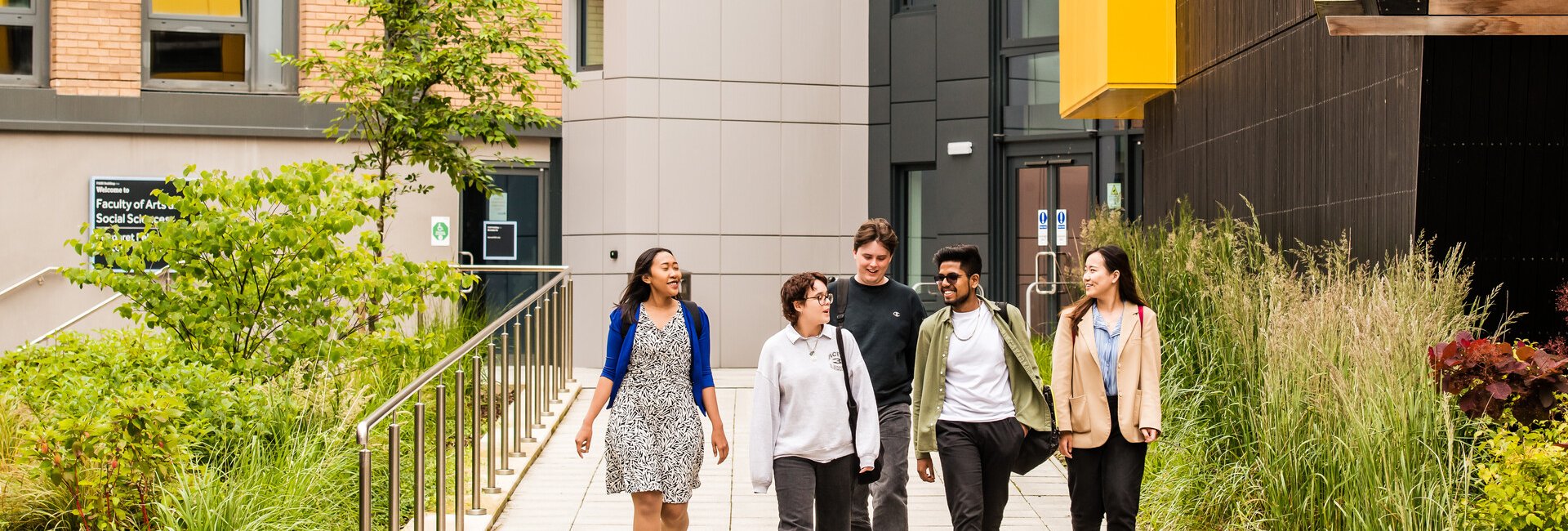Lancaster University Open Day
28 Jun 2025, 09:00
Lancaster

Lancaster’s joint German Studies and History degree is taught by the Department of Languages and Cultures in conjunction with the Department of History.
Your German Studies programme gives you the opportunity to acquire high-level language skills and gain a thorough understanding of the country’s historical, cultural, social and political background in a global context. In History, we will help you to develop your critical abilities studying modules in British, European and American world history.
Your first year comprises an exploration of the German language and its cultural context as well as the core History module ‘From Medieval to Modern: History and Historians’. Alongside this, you can choose the History module ‘People, Places, and the Past’ or a minor subject that complements your degree.
Building on your language skills in Year 2, you will study the culture, politics and history of Germany and Austria in more depth, as well as selecting modules which are international in scope and promote a comparative understanding of Europe and beyond. You will combine these with the core module, ‘The Nature and Practice of History’, and select options such as ‘The Making and Unmaking of Heroes in German History: from Warriors and a People’s Queen to Film Stars and a Football Team' and 'Restless Nation: Germany in the 20th Century'.
Spending your third year abroad in a German-speaking country allows you to make a major contribution to your command of the language, while deepening your intercultural sensitivity. You can study at a partner institution or conduct a work placement.
In your final year, you consolidate your German language skills, and study specialist culture and comparative modules, such as ‘Imagining Modern Europe: Post-Revolutionary Utopias and Ideologies in the First Half of the Nineteenth Century’. You will also select History modules such as ‘Europe’s Age of Extremes, 1914-45: Film and Memory’ or ‘The Shock of the New - Modernity and Modernism in American Culture, 1877-1919’.
Beginners Languages
Studying a language from beginners level is somewhat intense in nature so we only allow students to study one language from beginners level. Please bear this in mind when looking at our first year module options. If you apply to study a degree with a language from beginners level, your optional modules will only include higher level languages and modules in other subject areas.

Learn what it's like to study at Lancaster University. From key stats to campus highlights, open days, and more - find everything you need to know here.
The following entry points are available for this course:
This section shows the range of grades students were previously accepted with - learn more. It is designed to support your research but does not guarantee whether you will or won't get a place. Admissions teams consider various factors, including interviews, subject requirements, and entrance tests. Check all course entry requirements for eligibility.
Students aged 17/18 who applied to this course were offered a place.
See how students with your grades have been accepted onto this course in the past.
Operated by the Office for Students
Employment after 15 months (Most common jobs)
Go onto work and study
The number of student respondents and response rates can be important in interpreting the data – it is important to note your experience may be different from theirs. This data will be based on the subject area rather than the specific course. Read more about this data on the Discover Uni website.
No fee information has been provided for this course
Tuition fee status depends on a number of criteria and varies according to where in the UK you will study. For further guidance on the criteria for home or overseas tuition fees, please refer to the UKCISA website.
For information on our fees, please see www.lancaster.ac.uk/study/fees-and-funding.
Bailrigg
Lancaster
LA1 4YW
Visit our website Visit our course page
Email:ugadmissions@lancaster.ac.uk
Phone:01524 592028